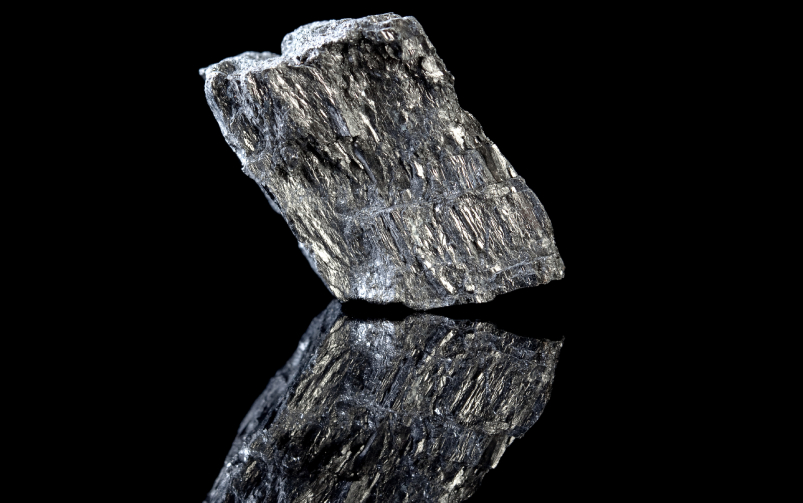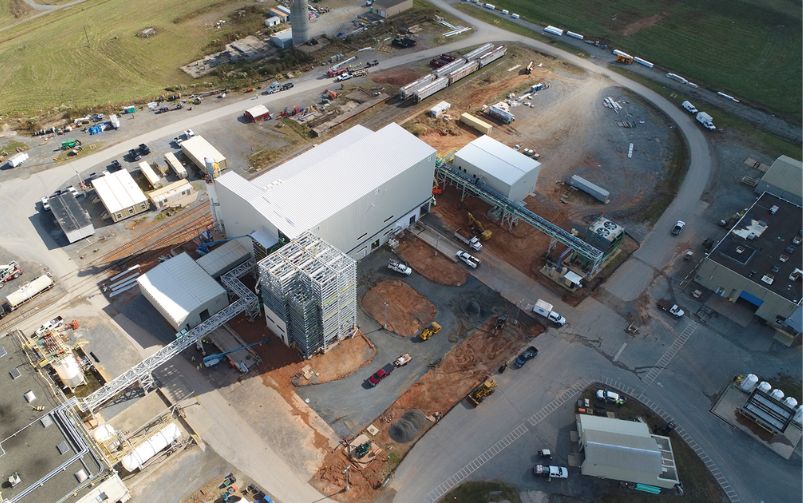Rio Tinto has begun construction on an expansion to its smelter in Alma, Quebec that will increase capacity for the production of low-carbon aluminum billets. Courtesy of Rio Tinto.
Welcome back to your weekly mining news recap, where we catch you up on some of the news you may have missed. This week’s headlines include new diesel particulate legislation for underground mines, construction at Rio Tinto’s aluminum smelter and merger talks as companies scramble to boost their critical minerals portfolios.
Glencore sweetened its offer for Teck Resources on Tuesday by adding a US$8.2 billion cash component to its previous US$23.1 billion merger proposal. The previous bid had been rejected by Teck, citing concerns that Glencore’s plan would expose Teck shareholders to thermal coal and oil trading. Candace MacGibbon, recently nominated incoming CIM president-elect, gave her opinion about the proposed merger on Wednesday in The Globe and Mail, stating if this merger is the beginning of a supercycle in critical minerals, Canadian companies and assets will become the targets of global mergers and acquisitions.
On Thursday, Teck rejected the revised bid from Glencore and made changes to its own suggested restructuring plan that would allow for an earlier full separation of its metals and coal divisions, as reported by Reuters. Teck Chairman Emeritus Norman Keevil said in a statement that it is not the time for Teck to explore a transaction of this nature before its planned separation. Teck’s revised restructuring plan now includes a potentially shorter path to fully separate its copper and zinc business, Teck Metals, from its Elk Valley Resources steelmaking coal business.
Hudbay Minerals plans to boost its copper portfolio by buying fellow Canadian miner, Copper Mountain Mining, in a US$439 million deal, as reported by Reuters. Hudbay stated that the combined company would create Canada’s third-largest copper producer and the deal could open US$30 million per year in operating efficiencies, with, according to a statement from Copper Mountain, two-thirds of that coming “from operating cost reductions through the application of Hudbay's operating efficiency practices to the Copper Mountain mine.” Under the terms of the deal, Copper Mountain shareholders would receive 0.381 of a Hudbay share for each Copper Mountain share held. Once the transaction is complete, Hudbay shareholders would own 76 per cent of the combined company, and Copper Mountain shareholders would own 24 per cent. The deal requires two-thirds approval by Copper Mountain shareholders and a majority vote by Hudbay shareholders.
Ontario is introducing new legislation to cut the acceptable diesel particulate levels in underground mines by 70 per cent, as reported by Sudbury Mining Solutions Journal. The Ministry of Labour, Immigration, Training and Skills Development announced new standards on Tuesday to reduce occupational exposure to diesel exhaust emitted by diesel-powered equipment underground. Ontario currently permits levels of up to 400 micrograms per cubic metre of air, which is one of the highest allowable levels in the world. Under the new legislation, the amount would be cut to 120 micrograms per cubic metre of air. The changes come from an initiative by the union United Steelworkers Local 6500, which represents about 2,700 mine workers in the Sudbury region. The first regulatory amendments will come into effect on July 1, 2023, and the rest will come into force on Sept. 1.
Newmont submitted what the gold mining giant has labelled as its best and final offer of US$19.5 billion to Newcrest on Monday. Newcrest has granted Newmont access to its books for due diligence, which will likely take about four weeks. The revised proposal offers Newcrest shareholders 0.4 shares in Newmont up from the initial offer of 0.38, and Newcrest shareholders would own about 31 per cent of the combined company rather than the 30 per cent in the original offer. If successful, the deal would be the largest gold mining takeover in history and Newmont would acquire assets including Newcrest’s Red Chris and Brucejack gold mines in Canada. Earlier today, Newcrest announced that it has entered into an exclusivity deed with Newmont, as reported by Kitco News. This grants Newmont exclusivity to conduct confirmatory due diligence until May 12, and Newcrest will not solicit competing offers.
Rio Tinto began constructing an expansion at its aluminum smelter in Quebec, which will increase its capacity to cast low-carbon aluminum billets by 202,000 metric tonnes, as reported by Mining.com. Commissioning for the aluminum smelter in Alma, Quebec is scheduled for the first half of 2025, and equipment such as furnaces, a casting pit, coolers, handling, inspection, sawing and packaging systems will be added to the existing casting centre. Rio Tinto is investing $240 million into the project, which will allow more of its aluminum production to be used to make billets with renewable hydroelectric power. The company estimated that the project will generate an economic impact of more than $200 million for Quebec and create about 40 new jobs at the Alma smelter.
The largest copper producer in the world, Chile’s Codelco, has renewed a clean energy contract with Canada’s Innergex Renewable Energy for its Gabriela Mistral division in the Atacama region of northern Chile, as reported by Reuters. Innergex owns 55 per cent of the Pampa Elvira solar thermal plant, which generates heat through thermal collectors and has been used to power the copper processing plant at Gabriela Mistral since 2013. The solar power has allowed Codelco to reduce the diesel consumption of the electrowinning process at the plant by 60 per cent, which it said has avoided 15,000 tons of carbon dioxide emissions per year. The contract will run until the end of 2032.
The Little Salmon Carmacks First Nation (LSCFN) has filed a complaint with the Yukon Water Board about remediation work at the abandoned Mount Nansen mine site, as reported by Yukon News. The LSCFN said the Mount Nansen site, which is in the First Nation’s traditional territory, has been an active source of water pollution since 1996 and that the standards set by the Mount Nansen Remediation Limited Partnership (MNRLP) are insufficient to protect aquatic life and human health. The First Nation’s filed complaint claims the MNRLP regularly breached the terms of its water licence for the project and is seeking compensation for loss and damage caused by the contamination, as well as amendments to the project’s water licence.
Botswana may not renew a five-decade sales agreement with De Beers if not given a larger share of production from the jointly owned Debswana mine, as reported by Mining.com. Botswana wants more rough diamonds available to the country’s gem trading company, Okavango Diamond Company. Analysts believe the government is seeking a 50 per cent share, which is double what it currently owns, and that this deal is a way for Botswana to gain more control of its diamond sector. Botswana is the second-largest producer of diamonds after Russia, and Debswana supplies De Beers with 75 per cent of its rough diamonds.
Sabina Gold & Silver’s shareholders have approved a takeover offer from B2Gold, as reported by Mining.com. The implied value of the offer is $2.20 per share, nearly $1.2 billion at Tuesday’s close. The takeover, which was first announced in February, gives B2Gold control of Sabina’s properties in Nunavut’s Back River gold district, including the Goose gold project. The Goose gold project is expected to become Nunavut’s third operating mine when it begins commercial gold production in 2025. The mine is currently fully permitted and ready to begin construction.
Australian copper producer Oz Minerals’ shareholders approved BHP’s A$9.6 billion takeover, as reported by Reuters. The offer included A$26.50 cash dividend and a A$1.75 special dividend that will be paid to Oz Minerals investors for each share. The deal will increase BHP’s copper exposure and boost its nickel supply as the scramble for the critical minerals continues. Last year Oz produced 124,065 tonnes of copper and 211,147 ounces of gold and began construction on its West Musgrave copper-nickel project in Western Australia.
That’s all for this week. If you’ve got feedback, you can always reach us at editor@cim.org. If you’ve got something to add, why not join the conversation on our Facebook, Twitter, LinkedIn, or Instagram pages?




